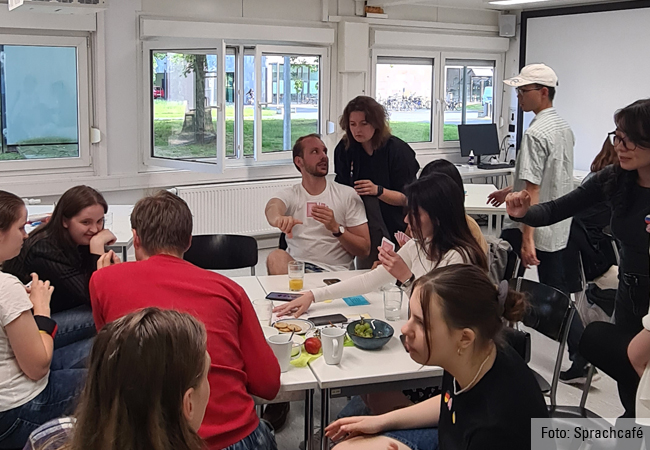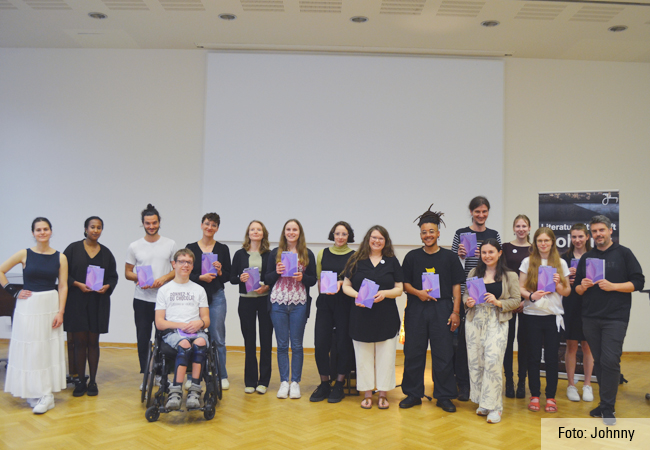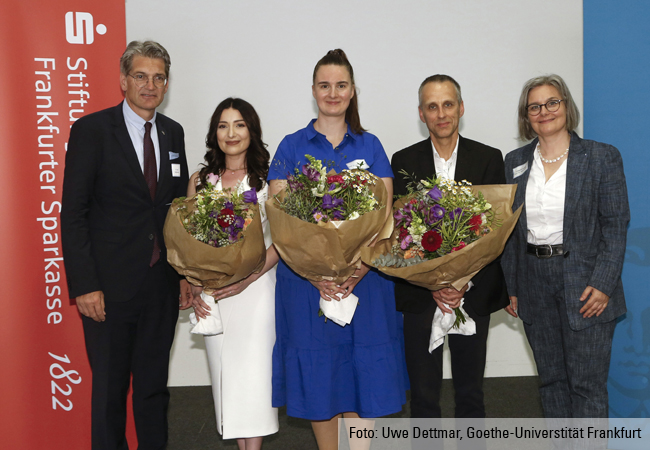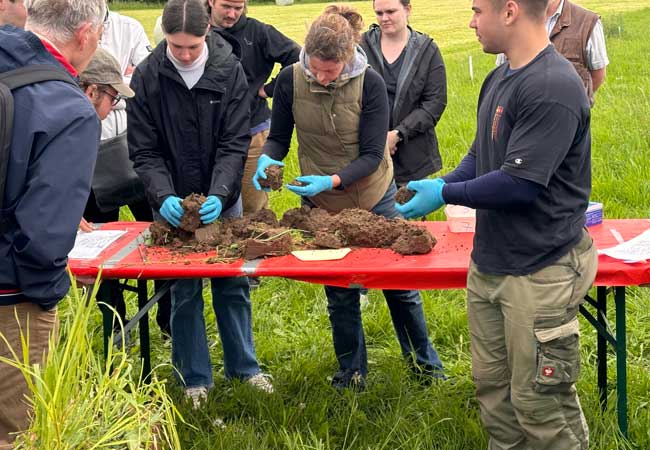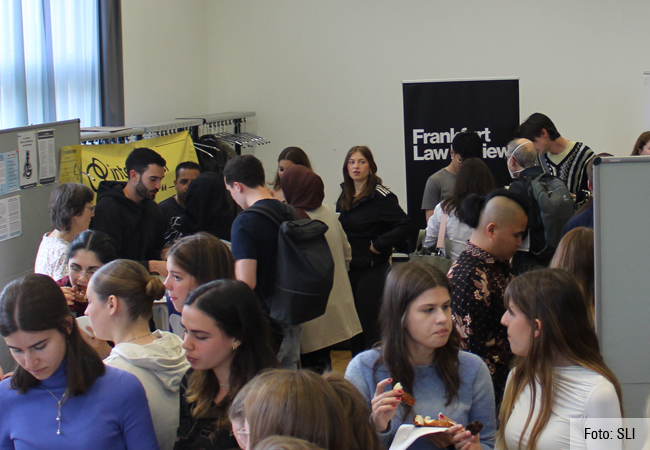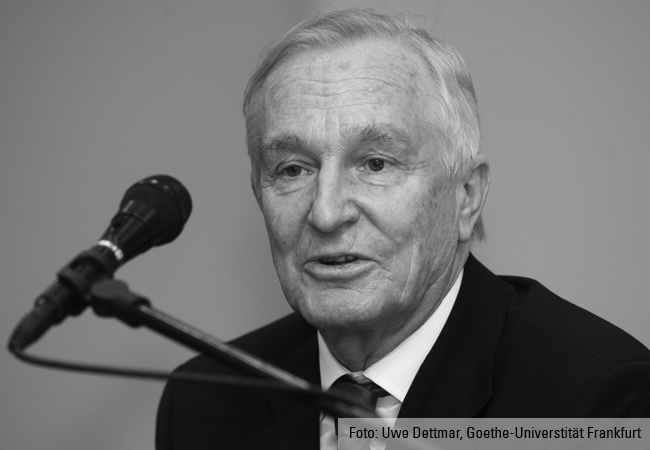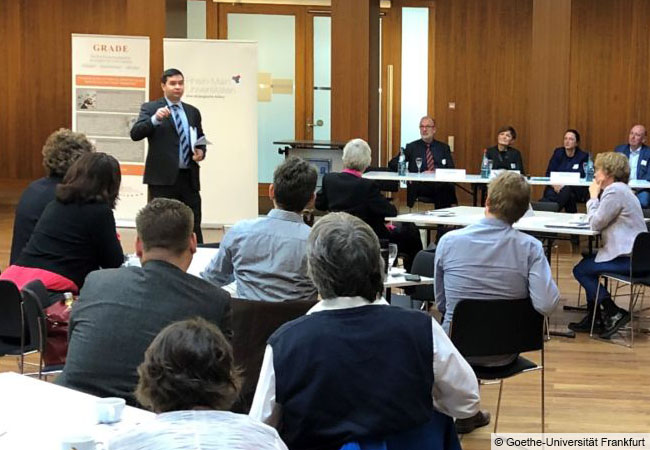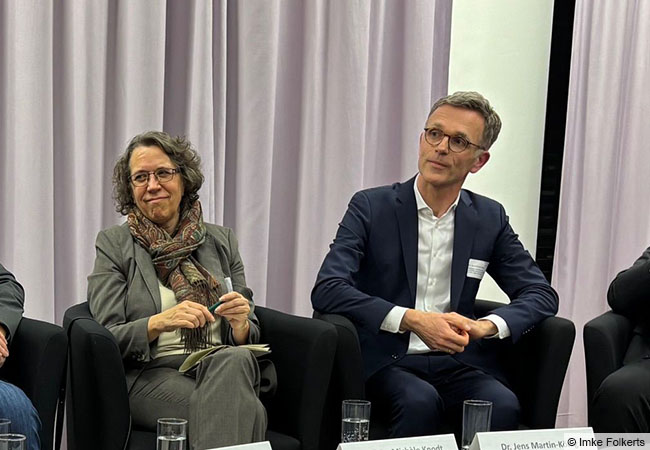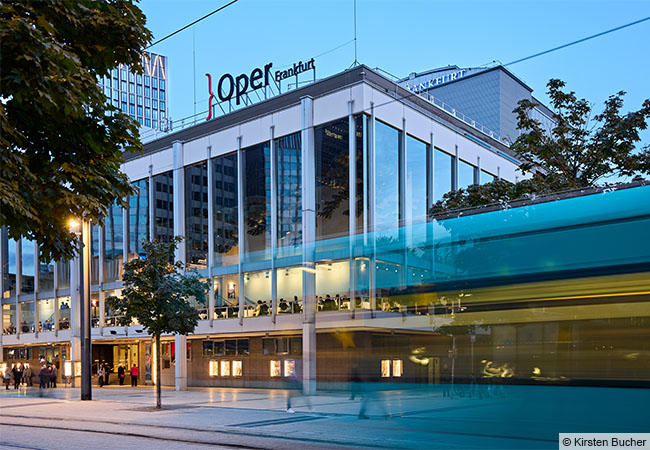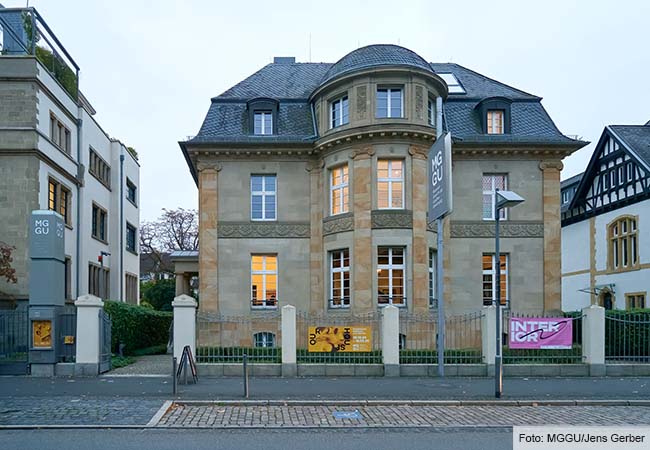A summer school at Goethe University Frankfurt looks at the connection between religion and European expansion from a postcolonial perspective.
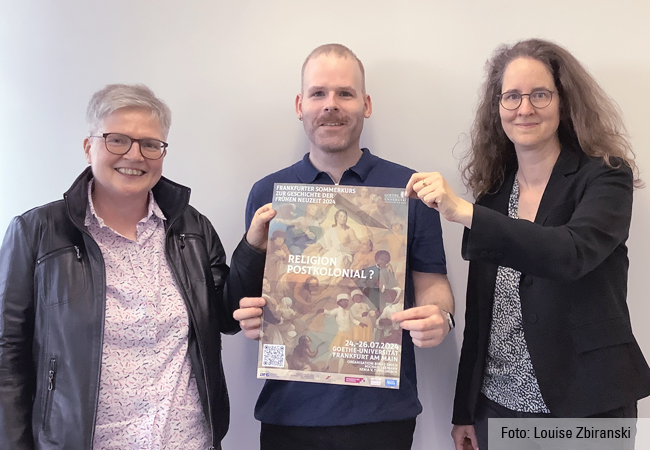
In recent years, the term “postcolonial” has transitioned from academic to social debate like scarcely any other. In this popular usage, important aspects are often overlooked: Postcolonial perspectives aim to shed light on colonial phenomena and their continued effect, especially in terms of their complex relationship. That is why they are typically characterized less by a single unequivocal standpoint than by a diversity of positions, methods and approaches. One of the declared goals of the Early Modern History Summer School in Frankfurt, which this year is entitled Religion in Postcolonial Times?, is to raise awareness of this plurality of postcolonial working methods and the topics treated. Historians Birgit Emich, Xenia von Tippelskirch and Michael Leemann are responsible for organizing the summer school, which was held at Goethe University Frankfurt from July 24-26.
Ambivalences
The course concentrated on the early modern period, i.e. roughly from 1500 to 1800. This time frame has its particular appeal, since postcolonial history often focuses on the later period from the 19th century onwards. This seems logical, as it was, after all, the heyday of European imperialism and the racism feigning to be scientific. “Postcolonial studies have not only reconstructed how these processes took place and continue to have an effect, but also revealed that even under these conditions there was cultural fusion and resistance. I do believe, however, that these ambivalences and a certain openness in the historical development are even more evident if we broaden our view and look at the period before the 19th century,” explains Birgit Emich, Professor of Early Modern History and principal investigator in the Dynamics of Religion research network.
Why is this so? On the one hand, the early modern period is referred to as the age of “European expansion”: In the course of opening up new sea and trade routes, the European powers successively began to claim and conquer territories on other continents. “On the other hand, their military dominance had not yet been established at this stage. What’s more, their interests also partly differed from those at the height of imperialism,” explains Michael Leemann, a research associate in the Polycentricity and Plurality of Premodern Christianities (POLY) research group, a Centre for Advanced Studies in the Humanities and Social Sciences of the German Research Foundation. In North America, for example, the French crown was for a long time less interested in extensive territorial conquests than in establishing local trading hubs. “The Europeans certainly did not regard the indigenous peoples as equals during this phase either. Nevertheless, they were not yet able to confront them from a position of assured superiority. This created space for encounters in which the balance of power was by no means clear,” Leemann continues.
An exoticizing, not rigidly racializing view of indigenous people
Xenia von Tippelskirch, Professor of Religious Dynamics and co-director of the Institut franco-allemand de sciences historiques et sociales (IFRA-SHS), adds: “In my most recent research, I have examined, among other things, the visit of an indigenous delegation from French Louisiana to the court of the French king in 1725. Contemporary reports on this visit suggest that although the Europeans already had a stereotyping and exoticizing view of the indigenous people, it was not yet necessarily a rigidly racializing and disparaging one.” Furthermore, the visitors from the New World could undoubtedly serve as a positive antitype in the debate on European decadence. “Nevertheless, it should not be forgotten that the indigenous dignitaries were not invited as equal rulers, but to pay homage to Louis XV.”
A key player in this encounter examined by von Tippelskirch was the Jesuit who accompanied the indigenous visitors: He mediated and translated, but at the same time also pursued the strategic goals of his religious order. In so doing, he serves as a point of reference to the summer school’s main content: the important role religion and religious stakeholders played in nascent colonization. The awareness of being Christian and thus superior, as well as the desire to spread Christianity, were seen as legitimation for violent conquests. The task of religious groups, especially religious orders, was also to establish a structural framework because religious and state power were closely interwoven in the early modern period. Some Catholic monarchies specifically used religious orders – the French monarchy, for example, used the Jesuits, Capuchins and Ursulines – to consolidate their rule in the new territories. After all, the religious orders not only spread the “true faith”. They were also economically active, gathered knowledge about the indigenous people and tried to educate them to become loyal subjects.
Depending on the situation, however, the missionaries certainly made an effort to adopt local customs and make the local people an attractive offer that they could also understand, for example by using the religious vocabulary of the prospective convertees. Sometimes, they were even obliged to go along with the religious practices adapted by the indigenous people – despite their close relationship with the colonial power, the missionaries of the early modern period also prompted cultural fusion that could not always be steered unilaterally. Moreover, situations where they encountered Christian communities that had already formed beforehand and independently of European intervention were ambiguous and challenging for them. This was the case, for example, with the “Thomas Christians” in South India. How was one expected to behave towards these indigenous Christians? Were they to be recognized as equals? These encounters not only provide an insight into the anthropological questions that occupied the missionaries of the early modern period. They also point to their connection with more far-reaching developments at that time.
Religious ambivalence
Why? Because religion and religious stakeholders also played a formative and ambivalent role in the fundamental question of what status was to be conceded to non-Europeans. On the one hand, missionaries were among the earliest critics of transatlantic enslavement. On the other hand, explains Michael Leemann, a question that occupied them was the extent to which non-Europeans could be fully-fledged Christians. “In my research, I have dealt with the Herrnhut Mission in the Danish West Indies. It becomes clear from the mission reports that missionaries held the view that ‘paganism’ among Black people was inherited, as it were, which is why they could not be equal Christians even if baptized. The importance of religious debates for the history of racism should not be underestimated.”
The researchers discussed these and related problems over three days with around 30 students and doctoral candidates as well as five established experts from Germany and Switzerland. This exchange across status groups has become a tradition: Birgit Emich has been organizing summer schools on the history of the early modern period with different topics for many years, in recent years with the support of the members of the POLY research group of which she is the director. The content of the summer school also builds on previous events. In 2023/24, a seminar on missionary work took place, and in February 2023 Emich co-organized the conference The Christian Mission and the Religious Other. “With regard to the summer school, it is particularly important to us that the participants benefit from the Frankfurt venue. That is why Kerstin von der Krone will show us the library’s Hebraica and Judaica Collection and we will visit the Colonial Image Archive with Anne Schumann-Douosson, which is also part of the university’s stock,” adds Emich.
How do archives, sources and documents come about?
At “half-time”, the course even dared to venture into contemporary history: In cooperation with the Mal seh’n cinema and the IFRA-SHS, the Belgian documentary Colette & Justin was shown, which deals with the end of the colonial era in Congo. “What I find good about the film,” explains Xenia von Tippelskirch, who also introduced it, “is that the line between good and evil, between perpetrator and victim, cannot be clearly drawn, as the director, who is processing his family’s own history, must painfully realize. The film also points to a general problem that concerns me when I am dealing with colonial and missionary history: How do the archives, sources and documents from which we reconstruct history come about? How can we succeed in making the voices of the indigenous and the enslaved heard?” This issue remains a task for future research.
Louise Zbiranski is Knowledge Transfer and Communication Officer for the “Dynamics of Religion” research group and coordinates the work of “Schnittstelle Religion”, an interdisciplinary platform for religion-related research at Goethe University Frankfurt.


